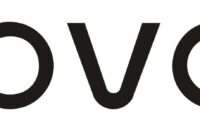IDENTIFY PH presented at ATS
WASHINGTON–(BUSINESS WIRE)–CorVista Health, Inc., a leading digital health company dedicated to improving cardiovascular disease diagnosis, announces the presentation of a machine-learned algorithm to IDENTIFY PH at the American Thoracic Society (ATS) conference. This proof of concept showcases the effectiveness of a machine learned (ML) phase space electro-mechanical pulse wave analysis to identify pulmonary hypertension (PH) patients with new onset symptoms at the point-of-care. This presentation follows the recent achievement of the Breakthrough Designation from the FDA for the CorVista System to aid in the diagnosis of pulmonary hypertension.
This IDENTIFY PH study is a prospective, multi-center study designed to recruit patients for the training and validation of machine-learned algorithms based on the CorVista System’s novel approach to measure and analyze the patient’s electrical and hemodynamic signals at the point of care. The measurements are used to identify PH patients with new onset symptoms. The study enrolled consecutive patients across US-based healthcare centers who presented symptoms suggestive of PH. These patients underwent signal data acquisition and were enrolled with transthoracic echocardiography (TTE), or right heart catheterization (RHC) data. The primary objective of the study was to demonstrate a ML algorithm’s predictive capability for PH diagnosis, with diagnostic accuracy measured using the area under the curve of the receiver operating characteristic (AU-ROC).
“After our recent Breakthrough Designation for pulmonary hypertension, we are now pleased to present this proof-of-concept research based on the IDENTIFY PH Study,” said Don Crawford, President and CEO of CorVista Health. “The data presented today demonstrates the potential of being able to aid identification of PH patients who present with new onset symptoms.”
Signals were collected using a proprietary signal capture device recording synchronous orthogonal voltage gradients and photoplethysmographic waveforms from resting patients for 3.5 minutes. Also collected were patient metadata (e.g., birthdate, height, weight) and the results of the patient TTE, or RHC.
“We are pleased to present this multidisciplinary work, which provides strong evidence that an algorithm with high performance can be developed to assess the likelihood of PH in patients with new onset symptoms of cardiovascular disease at the point-of-care,” said Charles Bridges, M.D., Sc.D., Presenter and Chief Scientific Officer of CorVista Health. “This advancement, when integrated into a point-of-care test, holds great promise for early PH detection within the clinical pathway.”
Detailed results are available in the attached abstract from the ATS 2023 program: A Supervised Machine-learned Algorithm to IDENTIFY PH in Patients With New Onset Symptoms.
The CorVista System is an investigational device Limited by Federal (or United States) law to investigational use.
About CorVista® Health
CorVista Health, Inc. is applying machine learning using real world test data to develop a novel cardiac diagnostic platform, CorVista® System, with the aim of transforming cardiovascular care and the patient experience. For more information, visit corvista.com.
CorVista Health is focused on FDA’s recent call to action to better leverage health technologies to advance health equity as presented by FDA Commissioner, Dr. Robert Califf. Particularly, the decline of life expectancy in rural areas has been cited as key evidence of disparate health outcomes. CorVista System has potential to enable more equitable care by providing access to immediately actionable, high quality cardiovascular status results in low-resource settings, where access to capital-intensive equipment and the qualified specialists needed to operate them may not be available. In doing so, the CorVista System is uniquely poised to advance the quality of care in rural and low-resource settings.
About CorVista® System
CorVista System is a non-invasive point-of-care solution that is intended to synchronously collect and apply machine learning to a patient’s cardiac and hemodynamic signals to predict the likelihood of cardiovascular diseases without the use of radiation, contrast agents, injections, fasting or exercise. Within minutes of the test, the CorVista® Analysis will be available in a secure web portal to aid physicians in rapidly diagnosing and treating patients with suspected cardiovascular disease, answering important clinical questions to guide better treatment decisions.
Contacts
CorVista Health, Inc.
Chris Bing Ernst
(415) 710-9445
cernst@corvista.com






